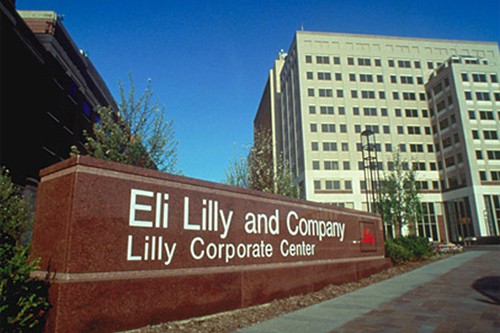
Eli Lilly has re-entered the GLP-1 class of diabetes treatment following the US approval of Trulicity.
The FDA gave the green light to the drug to improve glycaemic control in adults with type 2 diabetes, a condition that affects about 26 million in the US.
The approval follows six clinical trials involving 3,342 patients with type 2 diabetes where Trulicity (dulaglutide) demonstrated an ability to reduce blood sugar levels.
Trulicity is one of several GLP-1 receptor agonists now on the market that offer an alternative to insulins and other oral drugs for people with diabetes. The class replicates a natural hormone that helps the body release insulin when a person eats.
Lilly and its partner Amylin were the first companies to bring a GLP-1 to market with the approval of twice-daily Byetta (exenatide) in 2005. This was followed by a once-weekly version of the drug called Bydureon in 2011.
However, Lilly and Amylin mutually agreed to end their diabetes alliance in 2011, passing full control of the franchise to Amylin. The diabetes alliance of Bristol-Myers Squibb (BMS) and AstraZeneca then took control of the franchise in 2012 when BMS acquired Amylin. Following the dissolution of this alliance in early 2014 both Byetta and Bydureon are now owned by AZ.
Trulicity marks Lilly’s return to the class and the company will be banking on the drug’s once-weekly dosing regimen as a way to make an impact in an increasingly competitive market.
Since its launch in 2009 Novo Nordisk’s once-daily Victoza (liraglutide) has emerged as the dominant drug in the area, breaking into the top 50 biggest selling products for 2013 with sales of more than $2bn.
Competition is heating up, however, and GlaxoSmithKline has won approval for once-weekly albiglutide in the US under the name Tanzeum and in the EU under the name Eperzan.
Sanofi, which currently leads the insulin market with Lantus, also has ambitions in the GLP-1 area with Lyxumia (lixisenatide). The drug was approved as a once-daily treatment in the EU last year, however, its fate in the US is less certain as Sanofi pulled the FDA filing over concerns about the regulator’s request for cardiovascular safety data.
Trulicity’s main safety concern is a potential link to tumours of the thyroid gland, as observed in studies involving rodents. The FDA said it is “unknown whether Trulicity causes thyroid C-cell tumours” in humans but recommends the drug should not be used in patients predisposed to developing medullary thyroid carcinoma.




